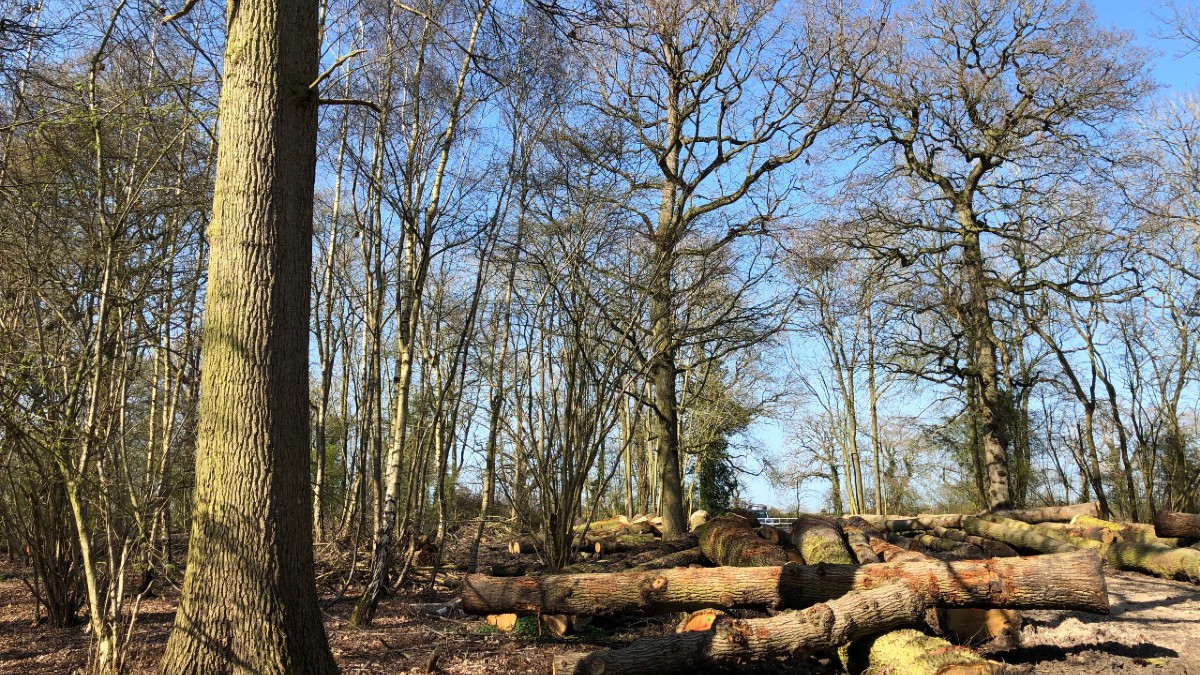
Whilst the traditional green view is that only softwoods, such as pine, can be ecologically sourced, the British hardwood industry is actually more environmentally friendly than you might imagine. Did you know that around 83% of all the hardwood flooring used in this country originates from sustainable sources, with the remainder coming from places where they currently don’t yet have certification such as the US? This means that this industry is not contributing to the extreme deforestation programs in places like the Amazon and Russia, where trees are being felled at an astonishing rate with little or no consideration for the local wildlife or replanting.
A Great Alternative
PVC is one of the most commonly used flooring materials. As well as the ecological cost of creating this substance from fossil fuels, vinyl is considered to be one of the most toxic and persistent substances around. Carpet manufacture also uses a number of toxic and harsh chemical treatments in the production process, such as VOCs (volatile organic chemicals) which include substances that are known to be carcinogenic and may cause respiratory problems. Hardwood flooring is a sensible, sustainable alternative to these modern materials, which looks good in any room, will last for a life-time, and can add extra value to your property.
Carbon Balance
One way of measuring the environmental impact of any business or industry is through its carbon footprint. The UK has actually experienced a rise in the production of carbon gasses in the last couple of years, with our annual output rising to around 850 mega-tons in 2010 from 810 mega-tons in 2009. However, even if your hardwood flooring has travelled the length of the country before arriving at your door, you still know that the trees from which the wood was created have actually removed a large amount of carbon gasses during their lifetime, actually making it a carbon negative product.
Check It Out
Obviously you’ll want to check that any hardwood flooring that you purchase comes from a managed forest. The best of these don’t just implement a policy of replanting any trees they use, but also look at the entire holistic balance of their woodland, taking into account a number of important factors such as the effect on local wildlife and water management. Any timber company you approach should be able to supply you with information regarding the sourcing of their wood, which will allow you to check that it comes from a conscientious, sustainable source. There are two certificates available to timber manufacturers from the FSC and the PEFC, which are both non-profit organisations who are able to check that any company’s procedures fit with their green guidelines.
Go Natural
You can get hardwood flooring that’s been treated with all kinds of chemicals and varnishes to change its colour and durability. However some manufacturers treat their products with a harmful substance known as a biocide, which prevents wood from contracting rot. The most environmentally friendly companies do not use such treatments and supply their hardwood flooring as an unfinished material. You may have to pay more for this kind of wood, but once it’s laid you can add your own ecologically sound treatments to extend its lifespan.
The Green Choice
If you’re looking for an ecologically friendly type of flooring for any room in your house, then the perfect choice has to be hardwood. With more and more of this industry now using sustainable sources for the raw materials for this product, there are few greener substances around. The advances made in recent years in forest management and replanting mean that you can relax in the knowledge that choosing hardwood flooring is not damaging the environment. Instead you’re choosing to support an industry that is actually creating more woodland, which is proven to help remove harmful C02 emissions, helping make a better atmosphere for our future.

